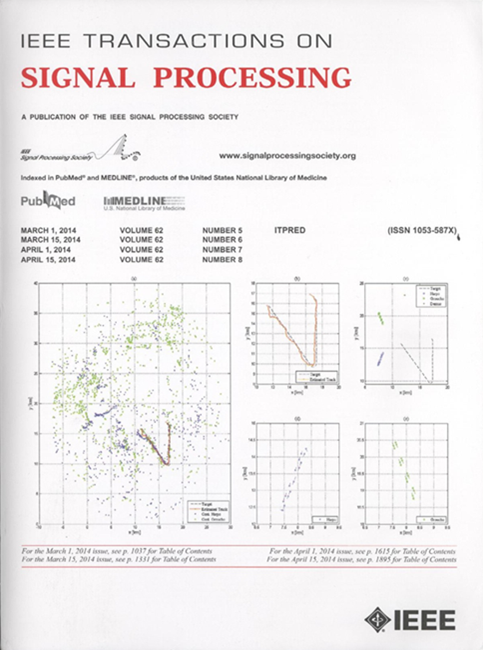Bayesian KalmanNet: Quantifying Uncertainty in Deep Learning Augmented Kalman Filter
IF 4.6
2区 工程技术
Q1 ENGINEERING, ELECTRICAL & ELECTRONIC
引用次数: 0
Abstract
Recent years have witnessed a growing interest in tracking algorithms that augment Kalman filters (KFs) with deep neural networks (DNNs). By transforming KFs into trainable deep learning models, one can learn from data to reliably track a latent state in complex and partially known dynamics. However, unlike classic KFs, conventional DNN-based systems do not naturally provide an uncertainty measure, such as error covariance, alongside their estimates, which is crucial in various applications that rely on KF-type tracking. This work bridges this gap by studying error covariance extraction in DNN-aided KFs. We begin by characterizing how uncertainty can be extracted from existing DNN-aided algorithms and distinguishing between approaches by their ability to associate internal features with meaningful KF quantities, such as the Kalman gain and prior covariance. We then identify that uncertainty extraction from existing architectures necessitates additional domain knowledge not required for state estimation. Based on this insight, we propose贝叶斯卡尔曼网:深度学习增强卡尔曼滤波中的不确定性量化
近年来,人们对用深度神经网络(dnn)增强卡尔曼滤波器(KFs)的跟踪算法越来越感兴趣。通过将KFs转换为可训练的深度学习模型,人们可以从数据中学习,以可靠地跟踪复杂和部分已知动态中的潜在状态。然而,与经典的kf不同,传统的基于dnn的系统并不能自然地提供不确定性度量,例如误差协方差,以及它们的估计,这在依赖kf型跟踪的各种应用中是至关重要的。这项工作通过研究dnn辅助KFs的误差协方差提取来弥补这一空白。我们首先描述如何从现有的dnn辅助算法中提取不确定性,并通过将内部特征与有意义的KF量(如卡尔曼增益和先验协方差)相关联的能力来区分不同的方法。然后我们发现,从现有架构中提取不确定性需要额外的领域知识,而状态估计并不需要这些知识。基于这一见解,我们提出了Bayesian KalmanNet,这是一种新颖的dnn辅助KF,它将贝叶斯深度学习技术与最近提出的KalmanNet相结合,并将KF转换为随机机器学习架构。该架构采用采样技术可靠地预测误差协方差,而不需要额外的领域知识,同时保留KalmanNet在部分已知动态中准确跟踪的能力。我们的数值研究表明,贝叶斯卡尔曼网在代表部分已知动态系统的各种场景中提供了准确可靠的跟踪。
本文章由计算机程序翻译,如有差异,请以英文原文为准。
求助全文
约1分钟内获得全文
求助全文
来源期刊

IEEE Transactions on Signal Processing
工程技术-工程:电子与电气
CiteScore
11.20
自引率
9.30%
发文量
310
审稿时长
3.0 months
期刊介绍:
The IEEE Transactions on Signal Processing covers novel theory, algorithms, performance analyses and applications of techniques for the processing, understanding, learning, retrieval, mining, and extraction of information from signals. The term “signal” includes, among others, audio, video, speech, image, communication, geophysical, sonar, radar, medical and musical signals. Examples of topics of interest include, but are not limited to, information processing and the theory and application of filtering, coding, transmitting, estimating, detecting, analyzing, recognizing, synthesizing, recording, and reproducing signals.
 求助内容:
求助内容: 应助结果提醒方式:
应助结果提醒方式:


